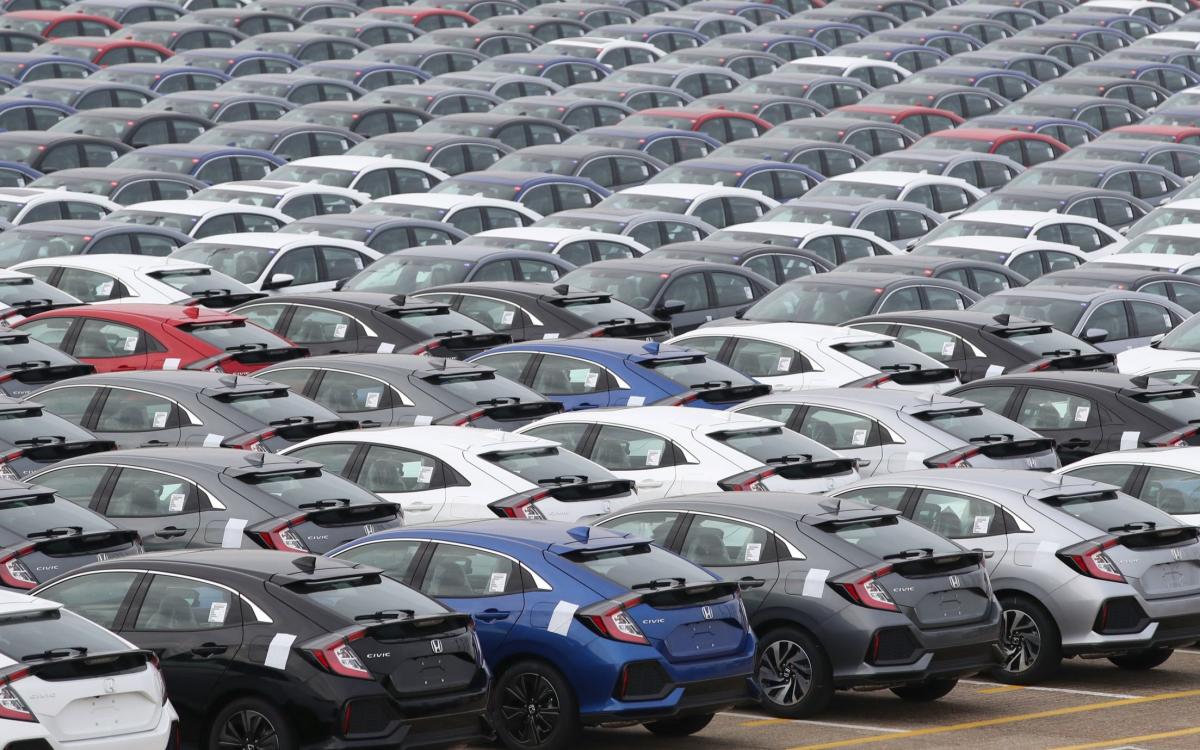
Carmakers including Honda and BMW have temporarily halted sales to customers in recent days as the industry grapples with a motor finance scandal that lawyers have warned will be “bigger than PPI”.
Honda last weekend ordered showrooms not to deliver vehicles bought via financing deals following a shock court ruling on commissions paid to car salesmen.
BMW also told dealerships to pause, although both companies have since resumed deliveries using interim arrangements.
It comes after banks, car manufacturers and dealers flew into a panic on Friday when Court of Appeal judges ruled that commission fees added to financing deals – a standard arrangement used for decades – were in fact unlawful.
The decision effectively overruled previous guidance issued by regulator the Financial Conduct Authority (FCA) and plunged the car industry into crisis.
The Government confirmed on Thursday it was ramping up efforts to stem the crisis, saying it was working closely with regulators and the industry to “understand the impact” of the judgement.
Treasury officials are understood to have held calls with bank representatives on Thursday afternoon to discuss the implications of the ruling.
It follows an urgent meeting between the Treasury, the Financial Conduct Authority and the Finance and Leasing Association, which represents lenders, on Tuesday.
Amid the uncertainty, several lenders have temporarily paused deal-making as lawyers prepare to launch potentially massive lawsuits against them. Deliveries have also been halted to prevent pre-agreed financing agreements coming into force.
A spokesman for Honda said on Thursday: “Following [the] Court of Appeal judgement, Honda Financial Services took the decision to pause funding finance business in order to assess this ruling.
“We have now had time to review the situation and have been able to put in place interim measures to allow us to resume the funding of all finance business.”
Car dealers generally receive commissions from banks or other lenders when they act as middlemen to sell vehicles to customers using financing arrangements.
The level of commission is often baked into the rates of interest charged but is often not itemised.
The Court of Appeals ruling threatens to upend this business model because it found that deals were illegal unless the level of commission had been fully disclosed.
In response, Honda was one of several dealer networks and car manufacturers that this week imposed temporary measures to halt vehicle deliveries.
Many have since introduced new systems that fully disclose commission or halting payment altogether, allowing them to resume more normal business operations.
Umesh Samani, chairman of the Independent Motor Dealers Association, said the car sales market almost ground to a halt on Monday and Tuesday after the ruling, because “every single finance company didn’t know what to do”.
Mr Samani, who runs a small car dealership in Stoke-on-Trent, said one of his sales nearly collapsed after BMW paused lending.
He sold a car on Saturday to a customer using a loan from Alphera Financial, which is part of BMW. But BMW paused lending on Tuesday, leaving the sale in limbo and the driver without a car.
“I had to say to the customer that the rules have literally changed overnight, I’m really sorry about this,” he said.
Mr Samani said some dealers had been told by customers they did not want to pay a commission, leaving them without a loan and unable to buy the car.
Changing documentation to include commissions has emerged as the quickest solution to get car sales moving again.
On Thursday, car giant Ford said it had changed terms and conditions to help customers complete their deals.
“Although we are continuing to assess the impact of the recent Court of Appeal decision, our immediate focus is on supporting our customers and dealers,” a spokesperson said.
“We have therefore implemented changes to ensure compliance with the new requirements set by this decision.”
However, with uncertainty around whether the ruling could be overturned by the Supreme Court, attention is now turning to whether lenders could face huge class-action lawsuits for past deals.
Law firms have been gathering up potential claimants for years, with one claiming that it already has more than 1m clients waiting to seek compensation.
On Thursday, one senior car industry executive warned that if all commission paid on car finance deals over the past 20 years was now repayable, it would be “a potential market failure situation”.
They added: “You would be looking at a situation where no one would want to provide car finance – or be able to.
“The regulator has completely and utterly lost control.”
The Court of Appeal judgement is likely to open the floodgates for a PPI-style claim rush across the UK.
Darren Smith, managing director of Courmacs Legal, said lenders could face “30m to 40m” claims over mis-sold car finance after the ruling, possibly outstripping the payment protection insurance (PPI) mis-selling scandal. In total, over 32m complaints were made to firms about PPI.
Mr Smith said: “In theory, it could be bigger.”
Courmacs alone has around 1.4m claims on its books, making it the largest book of motor finance claims in the UK. It was pursuing claims under a narrower ruling made by the Financial Ombudsman about “rip-off” car finance deals arranged by brokers.
However, last week’s Court of Appeal decision has widened the scope of potential claims, said Mr Smith.
“The period of time people can claim for is open-ended. You can go back further and it covers fixed fees and other products arranged at the time of finance,” he said.
“We see agreements with warranty for the finance, tyre protection, windscreen cover, paint, protection, all sorts of add ons. If I’m cynical, it was clearly in the car dealer’s interest to sell those extra products.”
Coby Benson, a lawyer at Bott and Co, said his firm had around 75,000 motor finance claims on his books, which he said could cost in excess of £100m alone if the Court of Appeal ruling held.
He said: “Before [the ruling] I thought this was going to be the second biggest mis-selling scandal that the country has ever seen, second only to PPI. Now I think it’s getting much closer and it has the potential to be larger.
“You’re talking tens of billions of pounds potentially out there to claim if this judgement stands, and the judgement doesn’t just apply to motor finance. It applies, in theory, to any credit broker.
“There’ll be concerns over the liquidity of lenders at that point, and that’s not a good position to be in.”
The Court of Appeal refused an appeal on the case and lenders must now ask the Supreme Court to hear the case.
Only 30pc of petitions are accepted by the Supreme Court – meaning the law could stand.
City investors are bracing for the impact of the judgement on the finances of lenders.
Analysts at Royal Bank of Canada warned the ruling meant banks would have to pay higher levels of compensation than anticipated.
For Lloyds Banking Group, RBC said the redress scheme could cost it around £3.2bn – much more than the £2.5bn it originally forecast.
The bank could be forced to halve its buyback plan, from £2bn to £1bn, to preserve cash on its balance sheet, analysts said.
EMEA Tribune is not involved in this news article, it is taken from our partners and or from the News Agencies. Copyright and Credit go to the News Agencies, email news@emeatribune.com Follow our WhatsApp verified Channel




